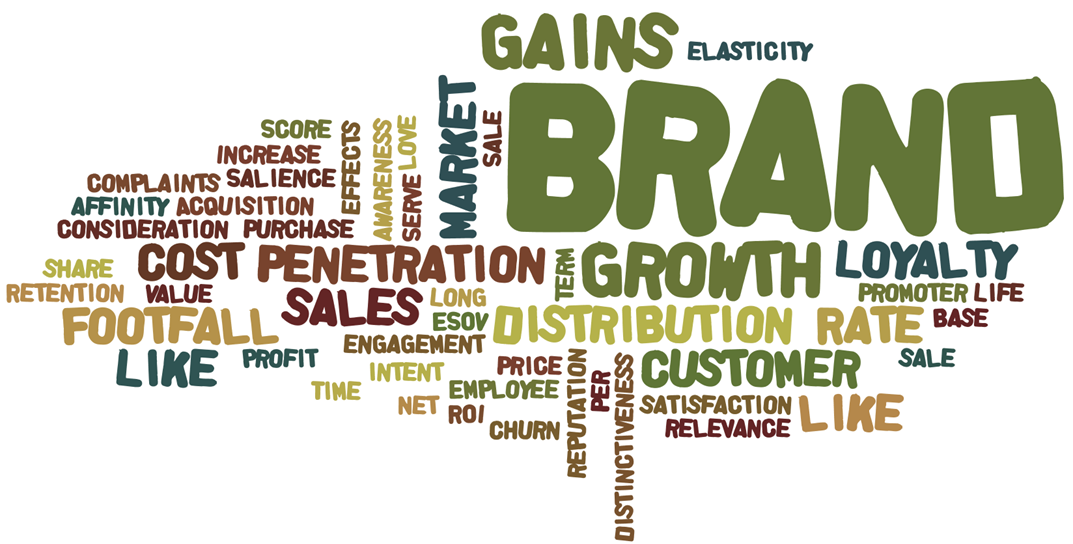This year’s Marketing Society Excellence Awards displayed the UK’s bravest and most impactful marketing achievements. Direct Line, Mars, John Lewis, The National Lottery, ITV and many more can now be added to the marketing hall of fame providing inspiration for years to come.
Reading the case studies, you get a real sense of vision and purpose. But what about measuring impact – the numbers behind marketing excellence? What role does measurement play in the ad campaigns that steal headlines, generate sales, and win awards?
In a world where a marketer’s currency isn't solely focused on creative anymore, the data gold rush has taken its hold. A rush to measure, validate, optimise and manage based on the insights from the data mine.
Before we marshal marketers towards the fountain of eternal data and insights, let’s stop and think about the end goal. Why we’re doing it, how and when we should do it, the impact on marketers and crucially the business.
Research carried out earlier this year, conducted impartially by an ex-CMO with senior marketers in the US representing brands with a total of $1.9bn advertising spend, confirms a number of marketing measurement pain points: Metrics overload, or analysis paralysis; short termism, organisational structure and the need for one source of truth.
With this mind, the Society and Gain Theory have been collaborating to explore these challenges and how we solve them with senior marketers across global hubs – New York, London, New Delhi & Singapore.
Over dinner, high atop the London skyline at the lofty heights of the Gherkin, the Society convened Excellence Awards judges, winners and a wider group of senior marketers to take a 30,000 foot look at the choppy marketing measurement waters. We were in good company with marketers including Jaguar Land Rover, Direct Line, Samsung, HSBC, Wiggle, Hiscox and more.
Metrics that Matter

There was broad agreement on the following fact: we have so much data we can now measure the arse out of marketing.
The increase in channels available to marketers is leading to an increase in the number of metrics used for reporting. This firehose of analytics has crippled many marketers with "analysis paralysis” whereby there’s not enough time, resource, and skillset in a day – or a month – to go through all the numbers, identify the key statistics and discern lessons from them. One marketer sagely remarked, “Just because you can measure, doesn’t mean you can manage.”
In addition, some of the metrics are not sufficiently linked to business outcomes. As one marketer said ‘We have too many metrics that are not financial’.
The consensus is to focus on the metrics that really matter. One marketer said that her view on measurement was simply, “Do they see our comms and will they buy more as a result?” Everything else, it would seem, is salad dressing.
Then, there are metrics that we need on daily basis to understand and manage business impact of marketing to the ones that help us manage stakeholder expectation. Using the right ones for the right ‘internal audience’ was another solution provided around the table.
Other marketers highlighted that in the sea of available metrics “ROI is the easiest metric - it’s a winner.”
Another view was around digital - Google, Facebook et al all were name dropped, of course. The thinking here is that yes do it, but learn from it. To quote one marketing effectiveness leader at the table ‘Go play, but please measure’.
More advice around the table included:
- Think about the “So What?” factor – only measure things you can do something about
- Talk soft metrics and the board are not interested! Focus on metrics that give you credibility
- Define the 6 things that drive value creation
- Where measurement is concerned, it’s incumbent on marketers to set the agenda
Is Brand Marketing Dead?
A challenge that was cited repeatedly, is the sharp pendulum swing towards short-term activation. It feels like marketers are bemoaning a lack of focus on long-term impact, and thus the demise of brand marketing and subsequent impact on long term growth. One view was that this is being caused by C-Suite and shareholders expecting instant results.
Another perspective is that digital has been a pariah to long term effectiveness with one marketer saying “Digital allows us to activate sales quickly.”...“Brand marketing is dead.” Said another “We are so short-term focused - it’s all about instant results. If our campaign isn’t generating sales after 5 hours, its pulled.”
So, marketers are left wondering: how do we highlight how brand marketing can impact growth?
One solution offered was using the right language and metrics when communicating to the business and especially the C-Suite. Marketers must be able to communicate growth via metrics that impact both top and bottom line. So, it follows that even long term brand impact must be able to show an ROI.
Ultimately, we all agreed that short term is not a bad thing but rather that it’s not a battle between short vs long but more a case of re-evaluating short term within long term.
Magic vs Logic

There is a place for hard metrics and a place for being brave and trying things that are not measured or measurable.
There was a sense that if you’re able to walk into the board room with a great creative idea then your short term ROI worries go out the window. Big, bold executions still win hearts and minds of consumers, and after all after isn’t the goal for marketing to change human behaviour?
As one marketer said, “We all know that the number one driver of ROI is creative.” Gemma Greaves, Global CEO at the Society, cited the Cadbury’s gorilla campaign which apparently didn’t initially receive a great reaction internally – there were reservations:
Lee Rolston, Cadbury’s director of marketing at that time, is quoted to have said, “We had a pragmatic concern that it was just too far for Cadbury to go from where they were at that point; that there had to be some sort of stepping stone. But then we thought, ‘You know what? This is an opportunity; we should do what we feel is right rather than what we think they will think is right.’”
Apparently, the board were tasked to take the creative home for the weekend and show it to friends and family. Come Monday, the emotive, game changing power of the creative execution and its potential was clear: everyone loved it and the creative was given the go ahead.
The Upshot
What was truly great about the dinner in London was how open everyone was about their challenges, views and crucially how happy they were to offer a solution to each other. This is what makes the peer network of the Marketing Society so great.
There are a few key takeaways. Firstly, it’s imperative to focus only on the metrics that matter and that you can do something about. Secondly, it’s about managing a portfolio of risk both short and long term. Finally, even in a time of Big Data, there are occasions when tossing out the spreadsheet and going with your creative gut can move hearts and minds and ultimately ROI.
My final thought is that marketers are well placed to set the agenda for measurement. Not only do we have the data and resources to hand to measure top and bottom line growth but we also possess, in my mind, the biggest power of all: the ability to tell compelling stories that touch the hearts and minds of people. We must be braver and bolder in using the story telling ‘super power’ more with internal stakeholders, remembering to utilize the right language for the right audience whether C suite or across the organisations.
By Claudia Sestini, Global Marketing & Communications Officer at Gain Theory



